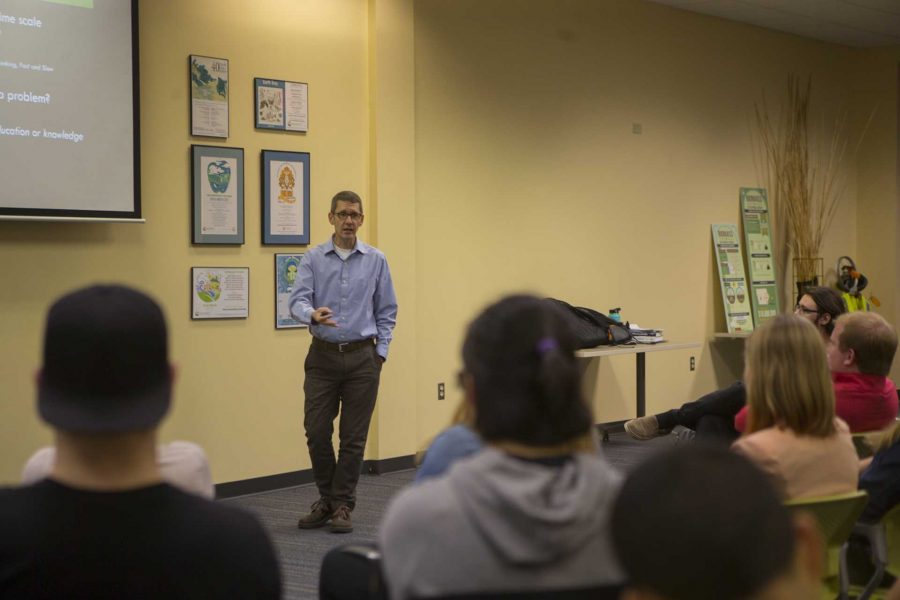Psychology and sustainability are not two things often associated with each other when discussing environmental issues, but a lecture Thursday night, “How Psychology Can Save the Planet,” aimed to educate people on how psychology can be used to influence people’s attitudes, behavior, and understanding when it comes to climate change.
This discussion is part of a monthly lecture series hosted by the University of Iowa’s Environmental Coalition, a student organization that promotes sustainability on campus.
Cassie Joyce, the head of the committee that selects speakers, liked the pairing of green and pysch.
“We thought this was a good connection for people who are not in environmentally related majors,” she said. “I wanted to see how we can start conversations with other people who don’t believe in global warming and figure out why people think that way.”
Ioannis Koutsonikolis, a co-president of the Environmental Coalition, said the members wanted to put a psychology lens on the topic of sustainability to show those interested in psychology that the two subjects are compatible.
“I want people to know how to engage with others about climate change and threats to the environment in ways that are more productive,” Koutsonikolis said. “It’s about learning how to have that discussion with each other so we can actually move forward on these issues.”
RELATED: Carter delivers lecture on urban revitalization, sustainability
Psychology Professor Shaun Vecera delivered the lecture. For those on the fence about what to believe about global climate change, the lecture noted 97 percent of climate scientists agree the Earth is warming and that it is being caused by humans and fossil-fuel emissions.
Vecera said research suggests teaching people this consensus changes their attitude about climate change, which ideally leads to a change in behavior.
A large part of the attitude change occurs because of the 97 percent consensus and normative social influence, he said. Essentially, people want to be in the social norm, so they change their attitudes and behaviors to match majority opinions.
“If you make people think the normative behavior is something that’s a sustainable behavior, they’re more likely to engage in that behavior,” he said.
Other factors, such as the temperature outside on a given day, also influence attitudes about climate change because the way in which people perceive the world is very tied to the present, and climate change is not always directly salient on a given day, he said.
The ability to act is a strong influence when it comes to promoting green behavior, Vecera said. One example of this is the availability of recycling in campus dorms. With a recycling bin in every dorm room, the compliance to recycling increases.
“I can tell you how important it is to recycle until I’m blue in the face, but if you live in an apartment or a building where there’s no recycling, it won’t happen, even if you have a very positive attitude about recycling,” Vecera said. “Having more knowledge can certainly be necessary, but it’s not always sufficient.”
Vecera also teaches a first-year seminar on the relationship between psychology and sustainability. Though his research is primarily in the area of cognitive psychology, he said, he has had a long-standing interest in environmental issues.



